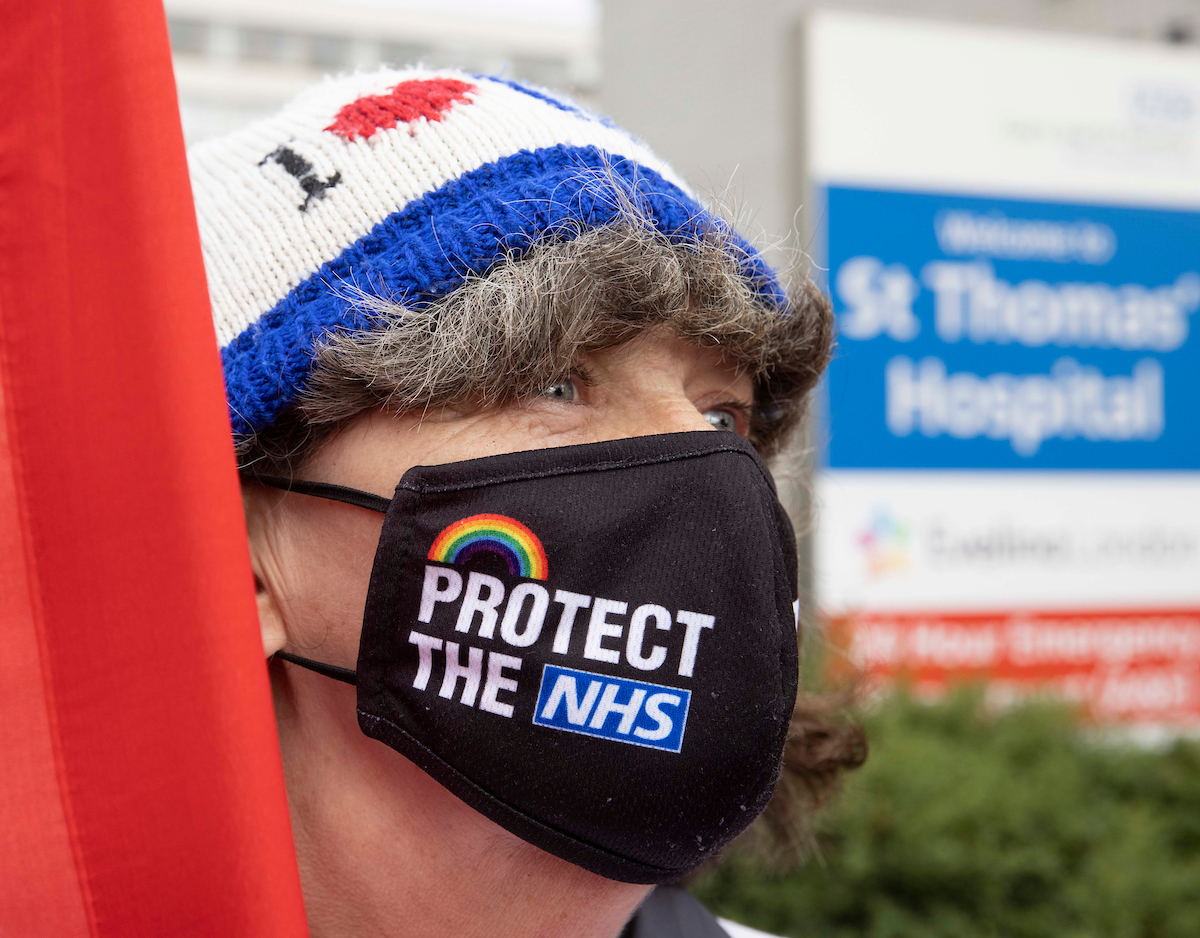No respect
Unite represents 100,000 NHS workers, from biomedical scientists to maintenance workers to nurses. Austerity measures put in place by the coalition government are seriously damaging NHS employees, while Cameron and his cronies privatise our national health.
NHS workers have suffered eight years of real-tem pay cuts, and NHS pay has been cut by 12-15 per cent since 2010. This means that NHS employees have lost between ÂŁ1,750 and ÂŁ15,000 since the general election.
Jeremy Hunt, worth ÂŁ18.5m, has decided to ignore the recommendation of a 1 per cent pay rise for NHS workers by the pay review body (PRB). This 1 per cent increase would translate into a meagre 7p an hour for the lowest paid workers and an average of 13p per hour across the NHS. This is less than a can of beans. Meanwhile, MPs will enjoy a pay rise of 11 per cent.
The government uses ÂŁ21,000 as the low pay threshold, and around 350,000 NHS workers earn less than this. Around 40,000 NHS workers earn less than the living wage (ÂŁ7.65 or ÂŁ8.80 in London). Paying all NHS workers the living wage would cost 0.018 per cent of the total NHS budget 2012/13.
Other changes, such as to on-call payments, sickness policies, overtime rates, and down-grading have left some Unite members with a dramatic loss of take-home pay – up to 30 per cent.
Low pay, cuts and more strenuous conditions are seriously lowering the morale of vital NHS employees – potentially putting patients at risk.
But who does Unite represent within the NHS, and how have they been affected by the coalition government’s draconian measures? We speak to some Unite NHS members for their view.
Pharmacy technicians
Pharmacy technicians train for two years and need a level 3 NVQ diploma in Pharmacy Service Skills of equivalent. Their starting salary is £18,838. Pharmacy technicians are a vital part of the NHS, supplying medicines to patients.
One pharmacy technician told us, “Having to pay more into pensions for three years, two years no pay rise and 1 year at 1 per cent, and losing the travel allowance and home to base mileage means that I am now £300 per annum worse off and have to work overtime to maintain the household.”
Another said, “I feel I’ve been delegated much more responsibility over the past four years, yet this has never been reflected in my pay banding. I have been frequently told that there is “no money” to address this and feel it would be unprofessional of me to decline undertaking these duties.”
Pharmacists
We all rely on pharmacists. They have expert knowledge on medicines and their use. To be a pharmacist means five years of specialist training, including a four year master’s degree. But despite their life-depending decisions and knowledge, they earn just £21,478 on entry.
One said, “I have 29 years NHS experience and am still on a junior pharmacist grade.”
“I feel NHS employees have been treated disgracefully as a result of the NHS reforms, but are just being told you’re lucky to have a job,” said another.
“With the threat of insulting pay rises, if any (on top of many years of no annual pay rise), changes to pensions, salaries and terms and conditions, NHS employees (and all public sector workers) are being chosen as easy targets for draconian measures.”
“With workload pressures and stress at an all-time high, I have never known morale in the NHS to be so low,” another pharmacist added. “It’s time to put an end to these cost cutting measures as patient safety is already suffering directly as a result, and things are only going to get worse.
“Good, honest hard-working NHS staff are being treated with an astonishing lack of respect for the high quality work which we are doing.”
Tomorrow we look at admin workers, clinical psychologists and ambulance staff.
 Like
Like Follow
Follow


